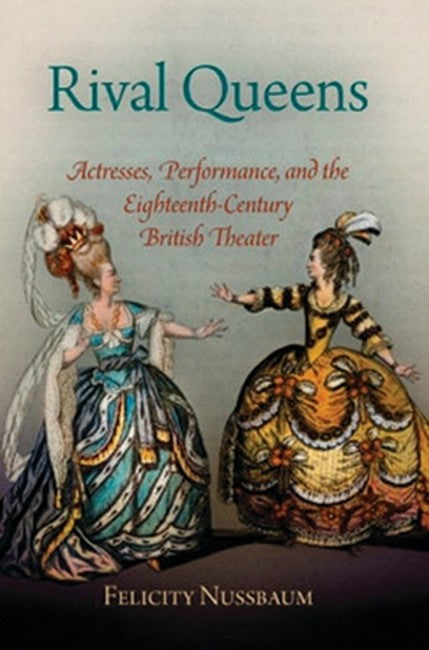Felicity Nussbaum is Distinguished Professor of English at the University of California, Los Angeles. She is the author of numerous books, including The Limits of the Human: Fictions of Anomaly, Race, and Gender in the Long Eighteenth Century.
Request Academic Copy
Please copy the ISBN for submitting review copy form
Description
Introduction: At Stage's Edge Chapter 1. The Economics of Celebrity Chapter 2. "Real, Beautiful Women": Rival Queens Chapter 3. Actresses' Memoirs: Exceptional Virtue Chapter 4. Actresses and Patrons: The Theatrical Contract Chapter 5. The Actress and Performative Property: Catherine Clive Chapter 6. The Actress, Travesty, and Nation: Margaret Woffington Chapter 7. The Actress and Material Femininity: Frances Abington Epilogue: Contracted Virtue Notes Bibliography Index Acknowledgments
"Excellent." (TLS) "[Rival Queens] has vital ramifications not only for a renewed study of the eighteenth-century theater but also for our understandings of the performance of gender and, specifically, femininity across the period." (Studies in English Literature 1500-1900) "A pleasure to read, with a deft balance of anecdote and theory, statistical data and narrative. Nussbaum, an acknowledged expert on gender and literature in the long eighteenth century, demonstrates her facility with eighteenth-century theater as well. The book will certainly appeal to feminists, theater historians, and scholars looking for nuanced histories of acting." (Theater Survey) "Skillfully interweaving analysis of a breadth of biographical source materials with literary analysis of plays and understandings of the economic context in which these women worked, the author offers a compelling argument for the ways in which theatrical economics disrupted simple stagings of femininity." (Theater Research International)

